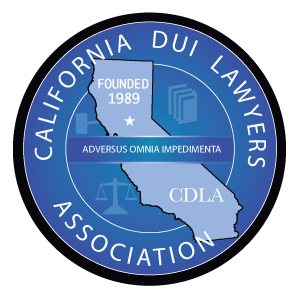The state of California allows its citizens to have their past criminal convictions expunged provided that they (the individual and respective criminal conviction) meet a set of qualifications. Today, record expungement and sealing are quite common in Sherman Oaks and throughout California.
A new law in the state allows those individuals who were arrested for a crime but never convicted to have the arrest record automatically sealed as a matter of right. Sealing an arrest will ensure that it will not show up on criminal background checks in the state, other than to law enforcement.
Record Expungement attorney has a team of experienced and knowledgeable lawyers who have assisted Sherman Oaks, CA, residents to have their arrest records sealed and criminal convictions expunged.
- Expungement of Criminal Records
California’s Criminal law on expungement is Penal Code 1203.4 PC. An expungement or dismissal refers to a legal process that releases an individual from any negative consequences resulting from a criminal conviction.
Once your criminal conviction records are dismissed, a criminal background search done on you will come back showing that the charges were ‘dismissed’ as opposed to showing ‘conviction.’ Today, background checks are commonly run by potential employers, landlords, and other organizations, which means that a clean record offers you a higher chance of success compared to having an arrest or conviction on your record.
Ergo, expungement increases your chances of competing for good jobs, enrolling for college or university, as well as getting accepted for an apartment lease, professional license, or any other important goal that requires you to go through an application process. Normally, having a past criminal record makes it harder, if not nearly impossible, to advance your professional and personal goals.
It is important to realize that expungement does not completely erase your criminal record, but only changes the conviction status to a dismissal. Also, not everyone is eligible for expungement.
Who is Eligible for Expungement?
Expungement is open to you if you have been convicted in California of either a misdemeanor or a felony provided that:
- You successfully complete your probation for the said offense
- You didn’t serve time in a state prison for the particular offense
- You did serve time in a state prison but would have also served the time in a county jail if the crime was committed after the implementation of Realignment (Proposition 47). Realignment refers to a period when many Californian crime penalties were adjusted.
You also do not qualify for expungement if:
- You are presently facing criminal offense charges, a trial, or an ongoing criminal investigation.
- You have been convicted of additional offenses after the one that you want to be expunged. However, it is possible to file for the expungement of multiple offenses at a go.
- The conviction was for extreme sex crimes such as sex offenses against children.
- The conviction was for extremely violent crimes like murder.
- You were charged and convicted in a federal court.
- You spent some time inside a state prison for the offense unless you can sufficiently prove that it could have otherwise been punished in a county jail if the conviction was after realignment.
- You are yet to finish serving your probation period. However, with the help of a lawyer from Expungement Record Attorney, you can apply to have your probation period terminated early to file for expungement. Here, successful probation completion refers to finishing all the terms stipulated by the court including paying any fines and restitution, finishing mandated counseling programs and community service, attending all court-mandated appearances, and not committing new crimes while on probation.
The good news is that if you do not qualify for an expungement, you can still get a relief for your offense through one of the following options:
- A Certificate of Rehabilitation
- A California governor’s pardon
- A California prison sentence commutation
What an Expungement Does and What to Expect
As per Penal Code 1203.4, a criminal conviction expungement releases you from virtually all the penalties and disabilities that arise out of your conviction. But there are some exceptions as listed below:
- Your requirement to register as a sex offender with the state of California still stands
- Expungement does not automatically restore to you the right to lost firearms
- The expunged offense still counts as a prior should you be convicted in future
- Expungement doesn’t undo the revocation or suspension of your driving license
This means that you are not obligated to reveal a criminal conviction that has been expunged. In California, employers cannot ask a job applicant about their criminal record until the latter receives a conditional offer of employment.
It is illegal for employers to treat you with prejudice or discriminate against you if your case was dismissed through expungement. Discrimination occurs because it is quite hard to prove that it happened. Notably, a majority of employers are willing to hire someone whose records are expunged over someone with a criminal conviction.
You stand a better chance of getting college approval, getting approved for an apartment lease, qualifying to apply for a state-issued professional license, among other benefits after expungement.
The Record Expungement Process
Expungement is not an event but a process that requires you to fill complicated legal paperwork and submit them to court before the relevant deadlines expire. As a result, it is prudent to hire an experienced lawyer to represent you throughout the process.
Our attorneys at Record Expungement Attorney are experts in record expungement and sealing processes. During your initial free consultation, we will look at your case to determine whether or not you qualify for expungement or require other legal options to clear your records.
Note that you can only apply for expungement if:
- You meet the legal qualifications
- Have finished your probation
- A realignment exception applies to your case
- You qualify to apply for early probation termination
- Two years have elapsed since you completed your sentence
Once all the paperwork is submitted on time, the prosecuting agency handling your case may or may not decide to contest the expungement in court. In this case, we will represent your case before the presiding judge. Fortunately, the prosecution rarely contests expungements.
If the judge chooses to grant your request, you will be allowed to withdraw your previous ‘guilty’ or ‘no contest’ plea and plead ‘not guilty.’ Once the verdict is set aside, the case is declared as ‘dismissed,’ which will be reflected on your police report.
But if the judge denies your expungement requests, he or she will probably give you their reasons, but your lawyer can also ask for them if the judge fails to do so. The reasons will be helpful in your future expungement petition.
Generally, the entire process takes between 30 and 60 days depending on the specific factors surrounding your case and the nature of your offense. Upon your request, we can help expedite the process.
Petitioning for Early Termination and Expungement of Your Conviction at the Same Time
It is possible to pack a number of motions into one but should only be done under the advisement of a skilled criminal defense lawyer who handles record expungement and sealing cases. The most common examples of petition packaging include asking the court to:
- Grant you an early termination of your probation. (Can only be granted as long as you are in compliance with all the terms stipulated by the court such as paying fines and restitution or finishing court-mandated programs like anger management counseling.)
- Reduce your felony charge to a misdemeanor. (Can only be done if your felony offense was classified as a wobbler case, which means that the prosecutor had the discretion to either file it as a misdemeanor or a felony.)
- Expunge your conviction.
- Sealing an Adult Arrest Record
According to a new California law, individuals who were arrested but were never convicted will have their arrest records sealed automatically. The new law originated as the California Senate Bill 393 and was signed in by Governor Jerry Brown.
Why Seal Your Arrests Records?
Since criminal records are public records, anybody can access your criminal history. This means that prospective employers, insurance companies, state licensing agencies, apartment owners, or even a potential dating partner can see your criminal record if they run a background search on you. Often, many do not care to find out if the arrest was justified.
It is quite easy, and rampant, for employers to dismiss your job application simply because you have an arrest record. Although this action is prohibited by the state, it is hard to prove. Ergo, having your record sealed under PC 851.87 will make it inaccessible to the public but can be viewed by criminal justice agencies or the state of California.
Who is Eligible to Seal Their Arrest Records under Penal Code 851.87?
PC 851.87 gives you the right to seal your records provided that the arrest never resulted in a conviction. An arrest does not result in a conviction, for the purposes of PC851.87, if any of the following is true:
- Charges against you were never filed and the statute of limitations has expired.
- Charges against you were filed but later dismissed without the possibility of being refiled.
- Charges against you were filed but you were acquitted at trial.
- Though you were convicted, the conviction was later reversed or vacated on appeal. Also, the charges cannot be refiled.
- You successfully completed your pre-sentencing or pretrial diversion program such as Penal Code 1000 PC (deferred entry of judgment) or Prop 36 (drug treatment).
The exception to automatically sealing your arrest record is when you have a history of arrests or convictions for child abuse, domestic violence, or elder abuse. However, even in the cases above, your arrest record can still be sealed if the presiding judge determines that such an action serves the interest of justice.
Moreover, you may not be eligible to have your arrest record sealed if:
- You can still be charged with the offense upon which you were arrested.
- Your arrest was for a crime that has no statute of limitation such as murder unless you were either found factually innocent or acquitted.
- You were never charged because you intentionally evaded any law enforcement efforts used to prosecute the arrest, for example, absconding from the jurisdiction.
- You evaded all efforts to have you prosecuted for the arrest by engaging in activities such as identity theft and was subsequently charged for that act.
The Arrest Record Sealing and Destroying Process
The first step to having your arrest record sealed is to file the petition with the court. In California, the petition must be filed either in the court where the arrest charges were filed or in the country or city that the arrest occurred if no charges were filed.
Furthermore, the petition must be legally served on both the arresting law enforcement agency and the prosecuting attorney of the county or city that the arrest occurred. The petition must include the following:
- Your name and date of birth
- The date the arrest occurred for which sealing is sought
- The city and county where you were arrested
- The law enforcement agency that arrested you
- Any other relevant piece of information that identifies the arrest including the case or court number
- The alleged offenses upon which your arrest was based
- A statement that you are entitled to have your arrest sealed either in the interests of justice or as a matter of right
- If your petition is not based on a matter of right but on the interests of justice, you need to include a statement that shows how these interests would be served if the court grants your petition. You also need to include declarations in support.
If the District Attorney decides to contest your petition then the court will schedule a hearing. Whether or not you will be required to personally appear in court is determined by your county of residence- in this case, Los Angeles County.
The judge will examine your arrest record during the hearing and, if necessary, any evidence presented supporting the petition. Since the judge has a lot of discretion in deciding whether or not to grant your motion to seal and destroy your arrest records – and because he or she can decide to deny your motion with prejudice barring you from re-filling – it is critical to hire a record expungement and sealing attorney.
A skilled lawyer from Record Expungement Attorney will research your case, make sure all the paperwork is filled out and filed correctly, and argue your case to the judge if necessary.
How Long Does Arrest Records Sealing and Destroying Take?
Typically, the entire process of having your arrest records sealed is 90 days after the date of filing the petition. Within 30 days of filing your petition, the court will notify the law enforcement agency that was involved in the arrest, the agency that manages the master criminal history records, and the California Department of Justice.
If the petition is approved, both your court and master criminal records will be immediately updated to show that your arrest has been sealed. The sealed records can only be disclosed to you or a criminal justice agency.
Any improper dissemination of your sealed arrest records is punishable by a civil penalty of $500 to $2,500 per violation as applicable. You can also sue for compensatory damages or even punitive damages if you think the release was done recklessly or intentionally.
- Difference Between Record Expungement and Sealing
Record sealing is only available if you have an adult arrest that did not result in either a conviction or jail time while a criminal record expungement refers to a relief that allows you to change your criminal conviction status to show a dismissal. The former cannot be disclosed or seen by the public during a background search but the latter can be seen as a case ‘dismissed.’
Contact Us Today for Record Expungement and Sealing
At Record Expungement attorney, we pride ourselves in having a top legal team of skilled and experienced criminal defense lawyers who handle criminal records expungements and arrest records sealing cases quickly and expertly. We also assist you in getting your certificate of rehabilitation (CoR) and certificate of detainment as well as applying for a governor’s pardon.
If you are interested in knowing more about California expungement, adult criminal record sealing and other methods of cleaning your record, contact us at 805-836-0422 today for your free consultation.









